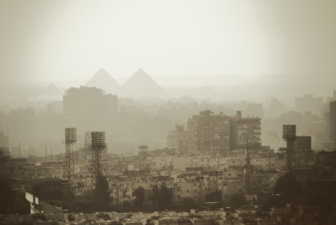
Middle East NGOs must cross social, political and religious barriers to achieve long-term solutions to solve their regional complex environmental problems.
While changes in political landscape across the Middle East and North Africa continue to pose immediate security and economic challenges for the region, can the environmental movement find a voice through wider political participation and the development of a functioning civil society? For many Arabs, even those living abroad, there is a new awareness, or perhaps a sense of hope, of the impact of collective spirit and social activism in building a more just society.
In a region torn by religious, cultural, political, and social divisions, independent local non-profit organizations (NGO’s) trying to build social movements have found it difficult to gain traction. Philanthropy is often linked with religion, ethnicity or politics.
In addition, a number of environmental and human rights non-government organizations in the Arab world are governed by the rich elite who have their own motives while international donor funding controls the activities of the more independent NGO’s.
As for the environmental movement in the region, it has gained momentum primarily during the past decade. The Arab world is economically diverse and has different concerns and interests when dealing with environmental issues with the level of environmental involvement often related to economic development.
However, as a group, based on the treaties and ministries in the different countries, the Arab countries have demonstrated, at least on paper, interest and concern in environmental issues.
Only the Palestinian Authority and the Iraqi Government have not signed and ratified the Kyoto Protocols.
In addition with the exception of Oman and West Sahara, all members of the Arab league have established ministries responsible for environmental issues.
Meanwhile popular concern for environmental protection, although limited, has appeared in different forms in across the region. In places like Lebanon, which has a longer history of social activism than other parts of the Arab world, there are over a hundred environmental non-governmental organizations registered.
Some are constantly active while others have activities when certain issues arise. For most of them, there is a real sense of frustration and helplessness of conservations gains.
New found civil liberties in Tunisia and Egypt
Change however is happening: According to a recent article in the Huffington Post, in Tunisia, nonprofits once repressed by the government are now advising the political transition.
In Egypt, the fall of President Hosni Mubarak in February is said to hold the potential for many charities to expand. Making grants to Egyptian charities had been difficult in the old government because of a rule requiring that all contributions from foreign donors be approved.
With a bigger role for human-rights activities, civic rights demanding social and environmental justice now have a greater influence on governments.
Obstacles like climate change remain
A number of challenges will continue to hold back the formation of a functioning civil society. Even with regime changes, care for the environment is still too far from people’s minds. Employment, freedom of expression and food prices remain a higher priority.
Furthermore, the link between climate change and human rights is not clear for most people. Nor is the recognition that corruption and failed governments misallocate resources that could be used for protecting the environment or human health.
This reflects a more general lack of understanding of the overlap between the vision environmentalists and human rights activists in terms of poverty alleviation and job creation.
In addition, even though the region seems to have been keeping abreast with developments in climate change by signing treaties and agreements, there is still no strategic effort at the government level to address the issue and environmentalists will need to work with transition governments to leverage existing infrastructure.
Social entrepreneurial ventures, falling between philanthropic and commercial entities, will require new legal and corporate structures to support them. Meanwhile, grants and social investing remain tied to the old system and limited funding undermine the ability to sustain and scale impact.
Local NGOs must also try to cross social, political and religious barriers to achieve long-term solutions to the region’s complex environmental problems.
In spite of these obstacles, there is hope that, once the dust settles, “pressure from below” will extend to concerns for environmental conservation and improvement of the state of the environment.
While expertise and finance from international organizations and other countries can help, local grass root groups, and the young, socially-networked, and internet savvy middle class supporters now have their chance to help catalyze positive change paving the way for an environmentally sustainable and peaceful Middle East.
Image via Paul K


